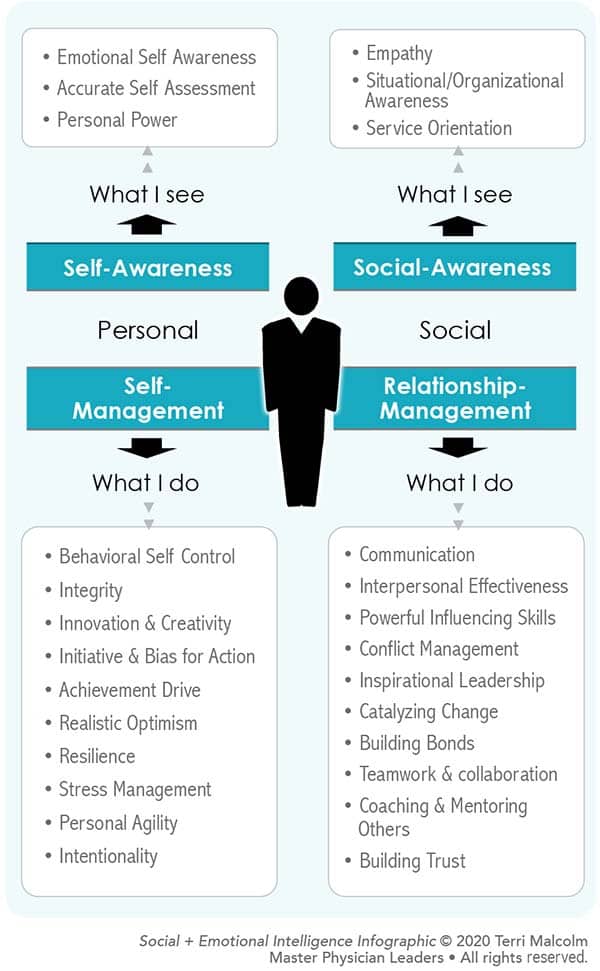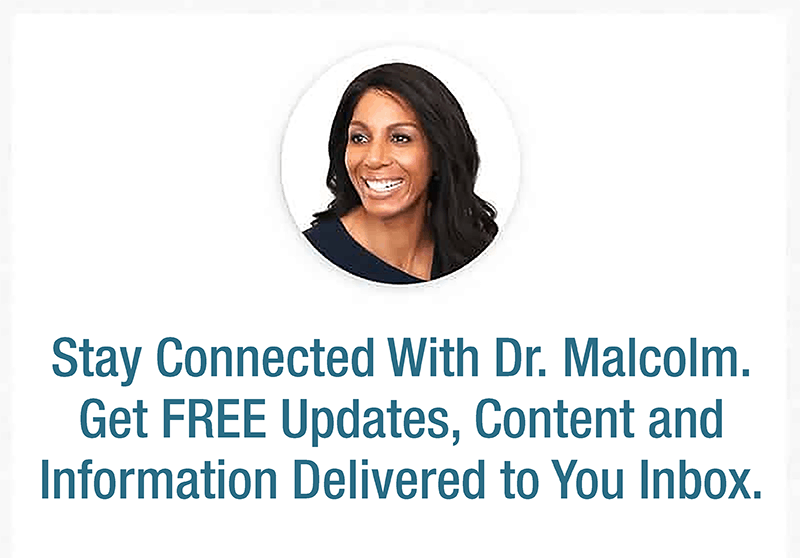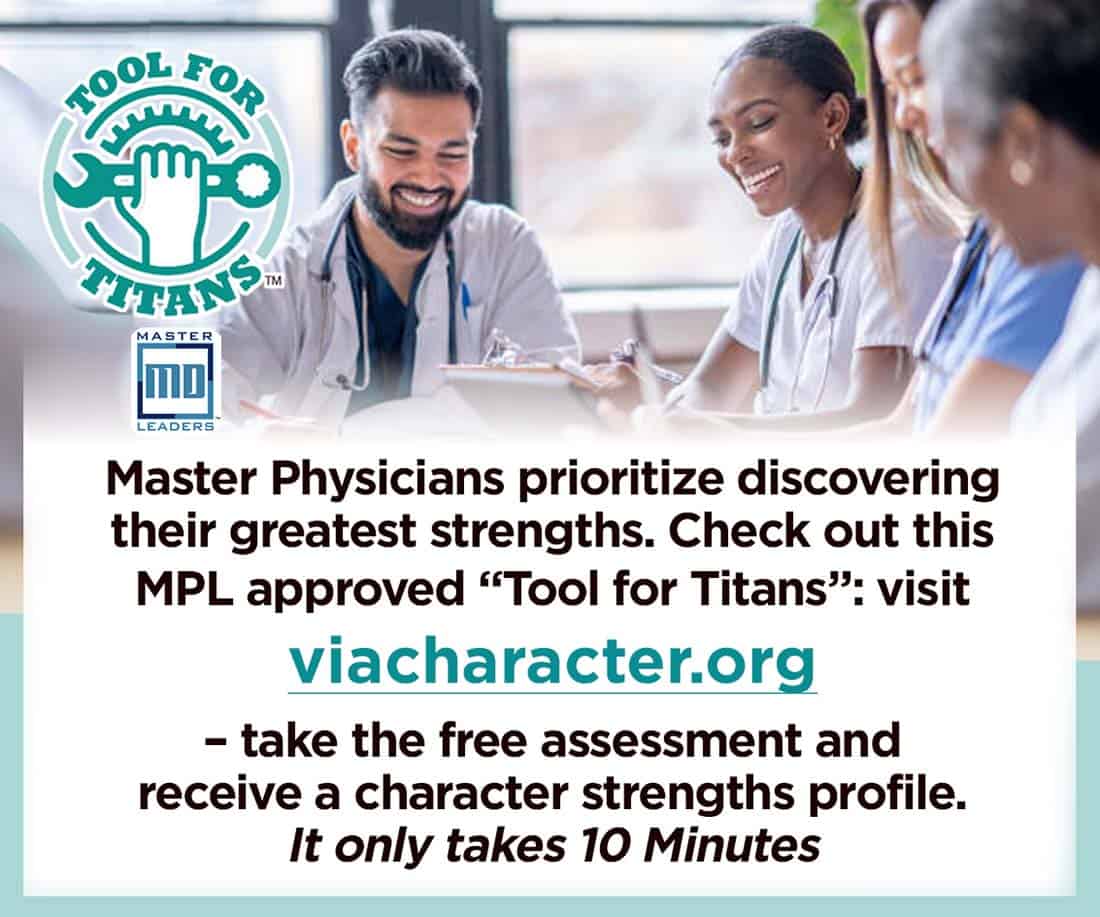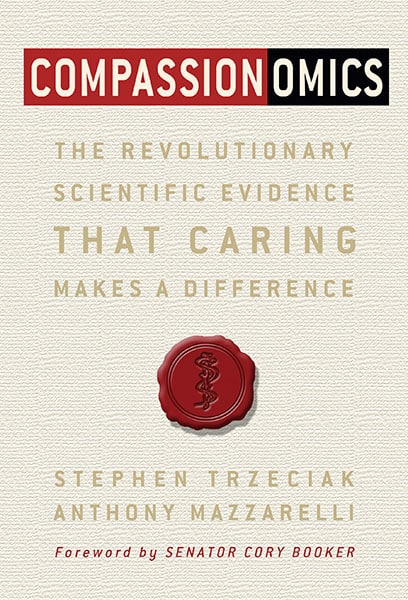The First 90 Days – Sign Up here to begin this free course
The First 90 Days

Stories like this spread fast, and quickly become part of the archives of legendary physician tales. What if the breaking news story in the lounge was about a colleague who is easy to approach, who responds with empathy instead of reacts with fury, and who breeds optimism and trust within the team? What if you were the physician extraordinaire in that breaking news story?
We are always telling a story – to ourselves and to the world around us. Our stories are filled with our histories, our beliefs, our values, and our emotions. Our emotions help us to tell our stories and we have a wide range of emotions. But how in tune are we to our emotions? And how in tune are we to the emotions of others?
We have the medical knowledge. Why is our Emotional Quotient,
or EQ, important in telling our story?
Social and emotional intelligence is the ability to perceive, use, and understand our emotions and those of others in the moment, and to manage ourselves and our relationships. S+EI is a collection of skills, not taught during medical training, that are greatly needed post-graduation and beyond. Physicians with strong social and emotional intelligence form meaningful doctor-patient connections that help doctors be more resilient to the stresses of the profession. Emotionally intelligent leaders also communicate effectively and with empathy; they foster safe environments where collaboration is woven into the organizational culture, and they leverage their emotions for the betterment of everyone to achieve desired outcomes.
The effects of emotionally intelligent people are contagious. Being around them leads to more productivity, enhanced creativity, and a higher positive impact because they are kind and respectful people who are sensitive to the needs of others. Social and emotional intelligence isn’t about “being nice” or “being liked.” There’s much more to it, including personal power, that inner belief we can handle what life is throwing at us. It’s about integrity, knowing and choosing what’s right when faced with difficult decisions. It’s about building trust AND building bonds.
S+EI consists of a 4-quadrant model and 26 competencies (see graphic). For the next three months, we’ll delve into each domain and its corresponding competencies. Diving deeper into one’s emotional intelligence is a fun and lasting endeavor because putting emotional intelligence into action is a learned skill that physicians can master.

To begin this free course, here is a quick step-by-step plan:
- Download the workbook journal, which can be accessed by clicking on the following link.
- Review the list of competencies. Identify your top three strengths and the three competencies you most want to improve. Write them down on the journal page. You will write them down every day throughout the 90-day course. The repetition will instill where you focus your attention and your energy.
- Determine your first action step to boost your EQ. This is your commitment to improved understanding of your story and the stories of others. Write down your commitment daily throughout the course and be specific. For example, “I will find at least one good thing about a challenging situation” or “I will spend 5 minutes to write in my journal every day.” As you learn new tips and strategies each week, your action step is likely to change. Or you may choose to stick with the same action step because it is so important to you. The key is to be consistent in writing down your commitment and putting it into action!
- Tell a friend about the course. The course is for you and our physician community. Tell a colleague about the free course and suggest you take it together. We learn best when the learning is experiential and when the learning process is positive and encouraging. It’s never too late to sign up and become part of the #thriveasyoulead community. To follow the discussions among colleagues, follow Dr. Malcolm on LinkedIn, Instagram, or Twitter.



